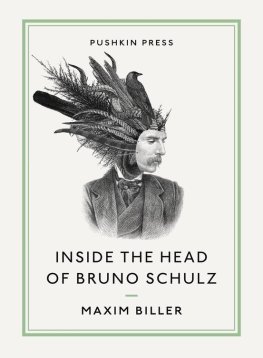
Discover books by V.S. Pritchett published by Bloomsbury Reader at
www.bloomsbury.com/V.S.Pritchett
A Careless Widow and Other Stories
A Man of Letters
At Home and Abroad
Chekhov
Dead Man Leading
Dublin
Foreign Faces
George Meredith and English Comedy
In My Good Books
It May Never Happen
Lasting Impressions
Marching Spain
The Camberwell Beauty
The Living Novel
The Gentle Barbarian
The Key to My Heart
The Lady from Guatemala
The Other Side of a Frontier
The Spanish Temper
It May Never Happen
& OTHER STORIES
by
V.S. PRITCHETT

For copyright reasons, any images not belonging to the original author have been removed from this book. The text has not been changed, and may still contain references to missing images.
This electronic edition published in 2013 by Bloomsbury Reader
Bloomsbury Reader is a division of Bloomsbury Publishing Plc, 50 Bedford Square, London WC1B 3DP
First published in Great Britain 1945 by Chatto & Windus
Copyright 1945 V.S. Pritchett
All rights reservedYou may not copy, distribute, transmit, reproduce or otherwise
make available this publication (or any part of it) in any form, or by any means
(including without limitation electronic, digital, optical, mechanical, photocopying,
printing, recording or otherwise), without the prior written permission of the
publisher. Any person who does any unauthorised act in relation to this publication
may be liable to criminal prosecution and civil claims for damages
The moral right of the author is asserted.
eISBN: 9781448210763
Visit www.bloomsburyreader.com to find out more about our authors and their books
You will find extracts, author interviews, author events and you can sign up for
newsletters to be the first to hear about our latest releases and special offers.
For
MY WIFE
On both sides of the Atlantic V.S. Pritchett has been acclaimed as one of the great masters of the short story. He is also distinguished as a critic and a traveller. Born in Suffolk in 1900, he left school at the age of sixteen to work in the leather trade in London. In the Twenties in Paris he worked as a shop assistant and as a shellac salesman, and took to journalism, first during the Irish Civil War and later in Spain.
His first book, Marching Spain, the account of a long walk from Badajoz to Vigo, was published in 1928 and from then on travel was his recreation, inspiring evocations of places and peoples in The Spanish Temper (1954) and London Perceived (1962), both published by The Hogarth Press, Foreign Faces (1964), New York Proclaimed (1965) and Dublin (1967). The author of biographies of Balzac and Turgenev, he gave the Clark Lectures on George Meredith in 1969. He was for many years a director of and contributor to the New Statesman. He contributed regularly to the New Yorker and the New York Review of Books. His critical works include The Living Novel (1949), The Myth Makers (1979), The Tale Bearers (1980) and A Man of Letters (1985). His two volumes of autobiography, A Cab at the Door (1968) and Midnight Oil (1971), are well known in Great Britain and abroad. His novels include Nothing Like Leather (1935), Dead Man Leading (1949) and Mr Beluncle (1959). The first volume of his Collected Stories appeared in 1982 and More Collected Stories in 1983. V.S. Pritchett died in 1997.
He was lifting his knees high and putting his hand up, when I first saw him, as if, crossing the road through that stringing rain, he were breaking through the bead curtain of a Pernambuco bar. I knew he was going to stop me. This part of the Euston Road is a beat of the men who want a cup of tea or their fare to a job in Luton or some outlying town.
Beg pardon, chum, he said in an anxious hot-potato voice. Is that Whitechapel?
He pointed to the traffic clogged in the rain farther down where the electric signs were printing off the advertisements and daubing them on the wet road. Coatless, with a smudged trilby hat on the back of his head so that a curl of boot polish black hair glistered with raindrops over his forehead, he stood there squeezing the water in his boots and looking at me, from his bilious eyes, like a man drowning and screaming for help in two feet of water and wondering why the crowd is laughing.
Thats St. Pancras, I said.
Oh, Gawd, he said, putting his hand to his jaw like a man with toothache. Im all messed up. And he moved on at once, gaping at the lights ahead.
Here, wait, I said. Which part of Whitechapel do you want? Where have you come from?
Surrey Docks, he said. They said it was near Surrey Docks, see, but they put me wrong. I bin on the road since ten this morning.
Acton, he read a bus sign aloud, recalling the bottom of the days misery. I bin there, and fascinated, watched the bus out of sight.
The mans worried mouth dropped open. He was sodden. His clothes were black with damp. The smell of it came off him. The rain stained from the shoulders of his suit past the armpits over the ribs to the waist. It spread from dark blobs over his knees to his thighs. He was a greasy looking man, once fat and the fat had gone down unevenly like a deflating bladder. He was calming as I spoke to him.
A sailor, of course, and lost. Hopelessly, blindly lost. I calculated that he must have wandered twenty miles that day exhausting a genius for misdirection.
Here, I said. Youre soaked. Come and have a drink.
There was a public-house nearby. He looked away at once.
I never touch it, he said. Its temptation.
I think it was that word which convinced me the sailor was my kind of man. I am, on the whole, glad to say that I am a puritan and the word temptation went home, painfully, pleasurably, excitingly and intimately familiar. A most stimulating and austerely gregarious word, it indicates either the irresistible hypocrite or the fellow-struggler with sin. I couldnt let him go after that.
Presently we were in a caf drinking acrid Indian tea.
Off a ship? I said.
He looked at me as if I were a magician who could read his soul.
Thank Gawd I stopped you, he said. I kep stopping people all day and they messed me up, but you been straight.
He gave me his papers, his discharge paper, his pension form, official letters, as he said this, like a child handing himself over. Albert Edward Thompson, they said, cook, born 96, invalided out of the service two years before. So he was not just off a ship.
Theyre clean, he said suspiciously when I asked him about this. I got ulcers, riddled with ulcers for fourteen years.
He had no job and that worried him, because it was the winter. He had ganged on the road, worked in a circus, had been a waiter in an Italian restaurant. But what worried him much more was getting to Whitechapel. He made it sound to me as though for two years he had been threshing about the country, dished by one job and another, in a less and less successful attempt to get there.
What job are you going to do? I said.
I dont know, he said.
Its a bad time, I said.
I fall on my feet, he said, like I done with you.
We sat opposite to each other at the table. He stared at the people in the caf with his appalled eyeballs. He was scared of them and they looked scared too. He looked as though he was going to give a yell and spring at them; in fact, he was likelier to have gone down on his knees to them and to have started sobbing. They couldnt know this. And then he and I looked at each other and the look discovered that we were the only two decent, trustworthy men in a seedy and grabbing world. Within the next two hours I had given him a job. I was chum no longer, but Sir. Chum was anarchy and the name of any twisty bleeder you knocked up against, but sir (for Thompson, out of the naval nursery) was hierarchy, order, pay-day and peace.
Next page




